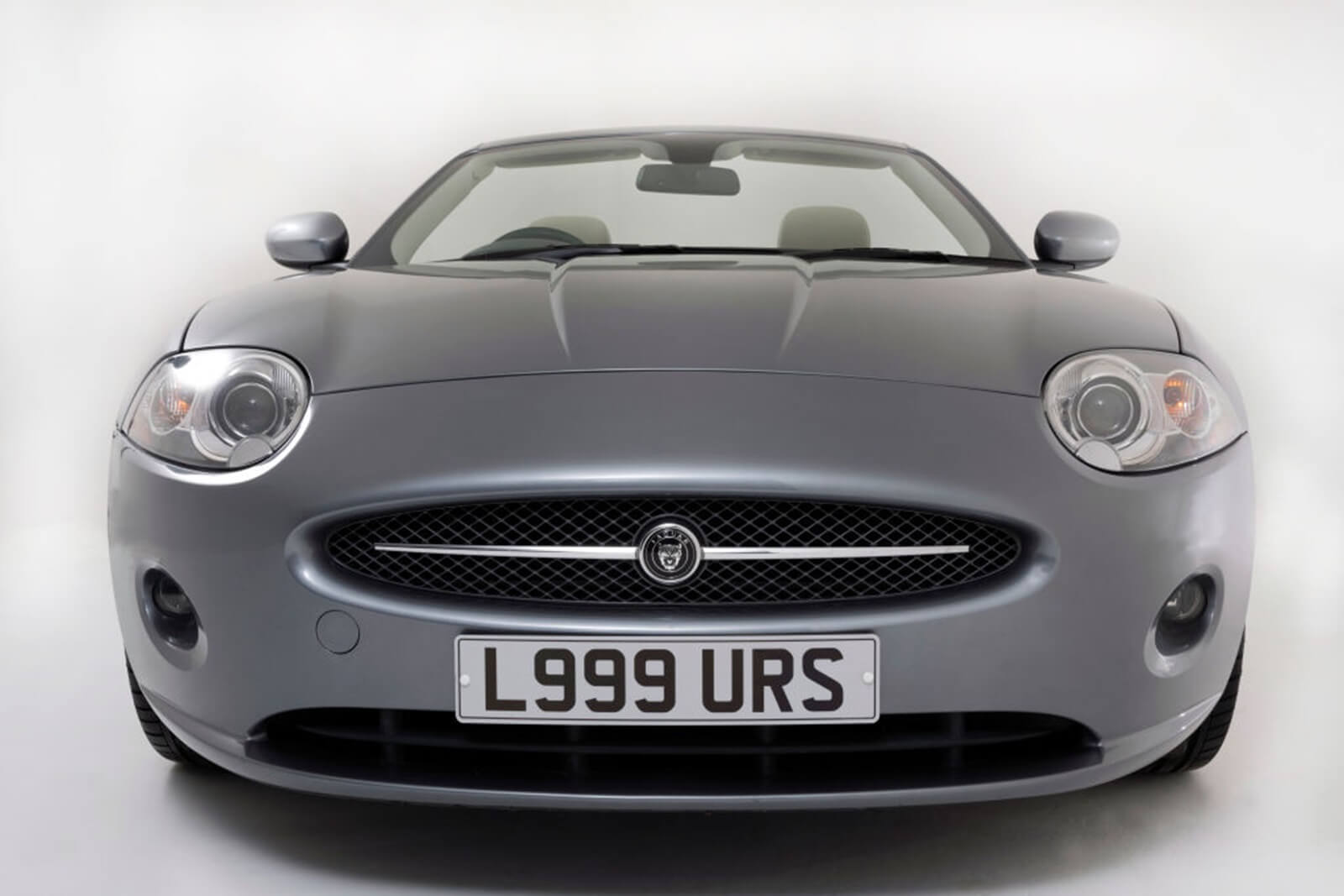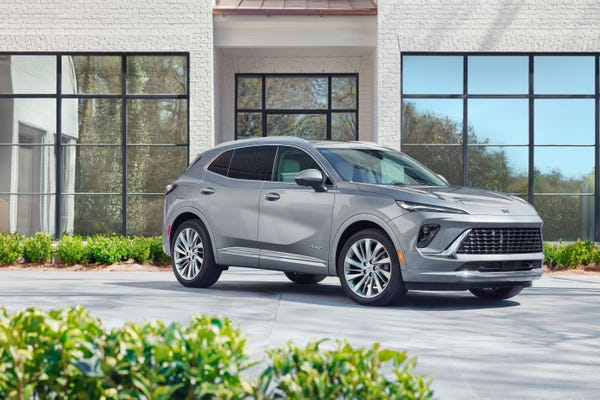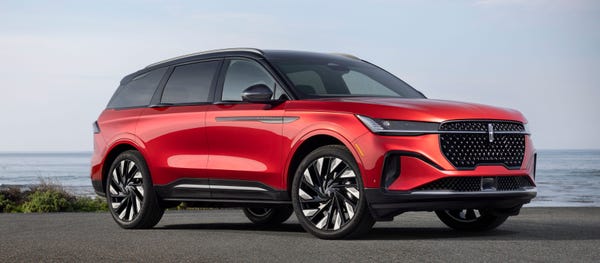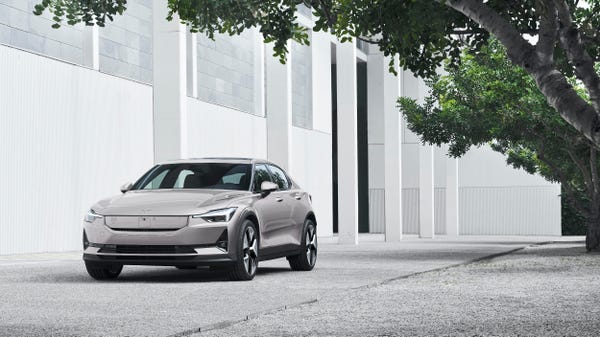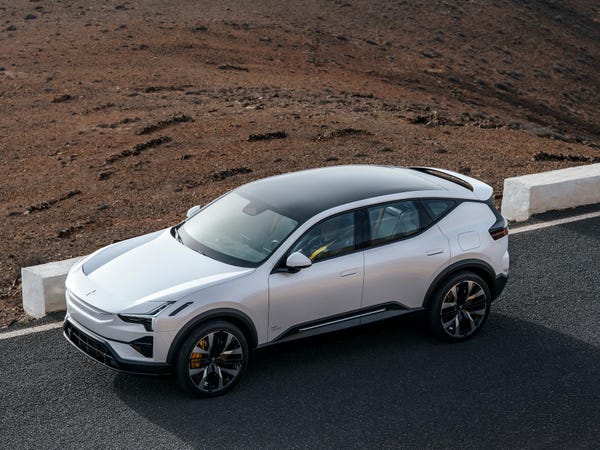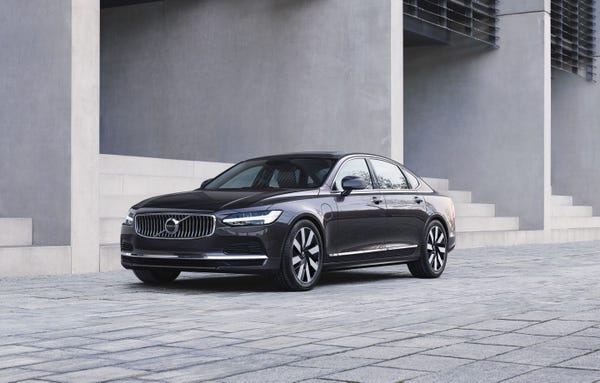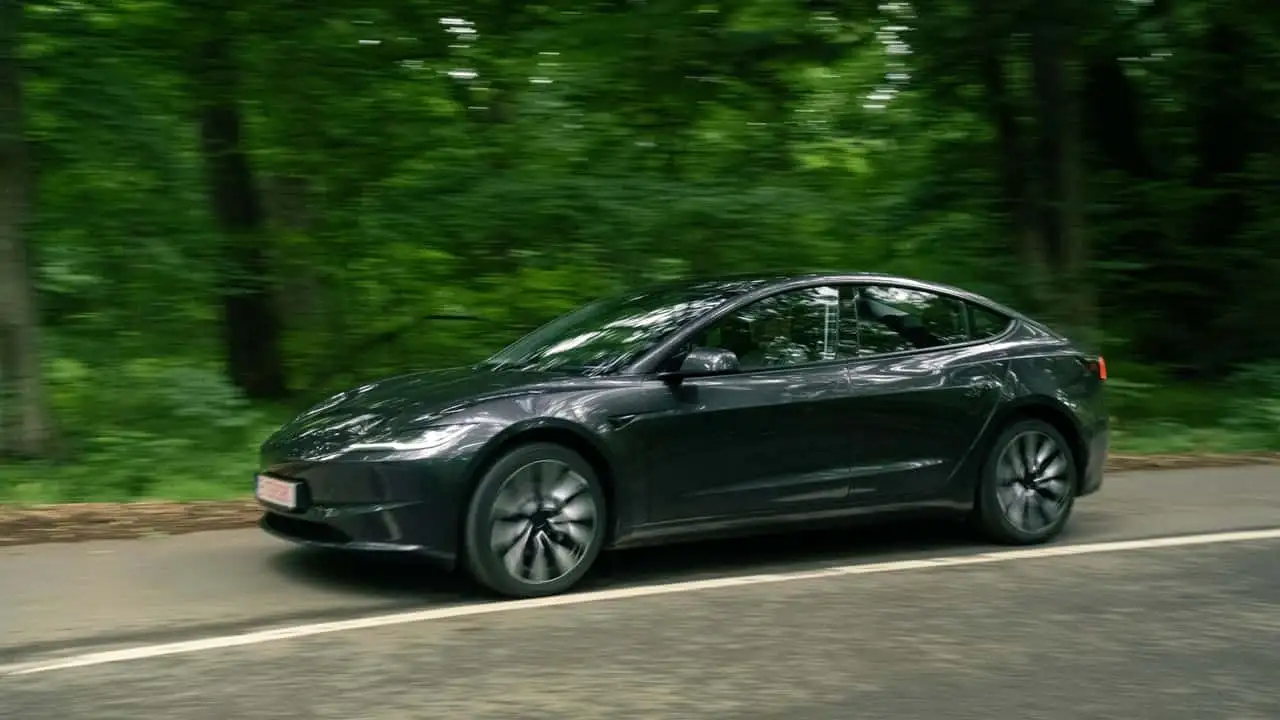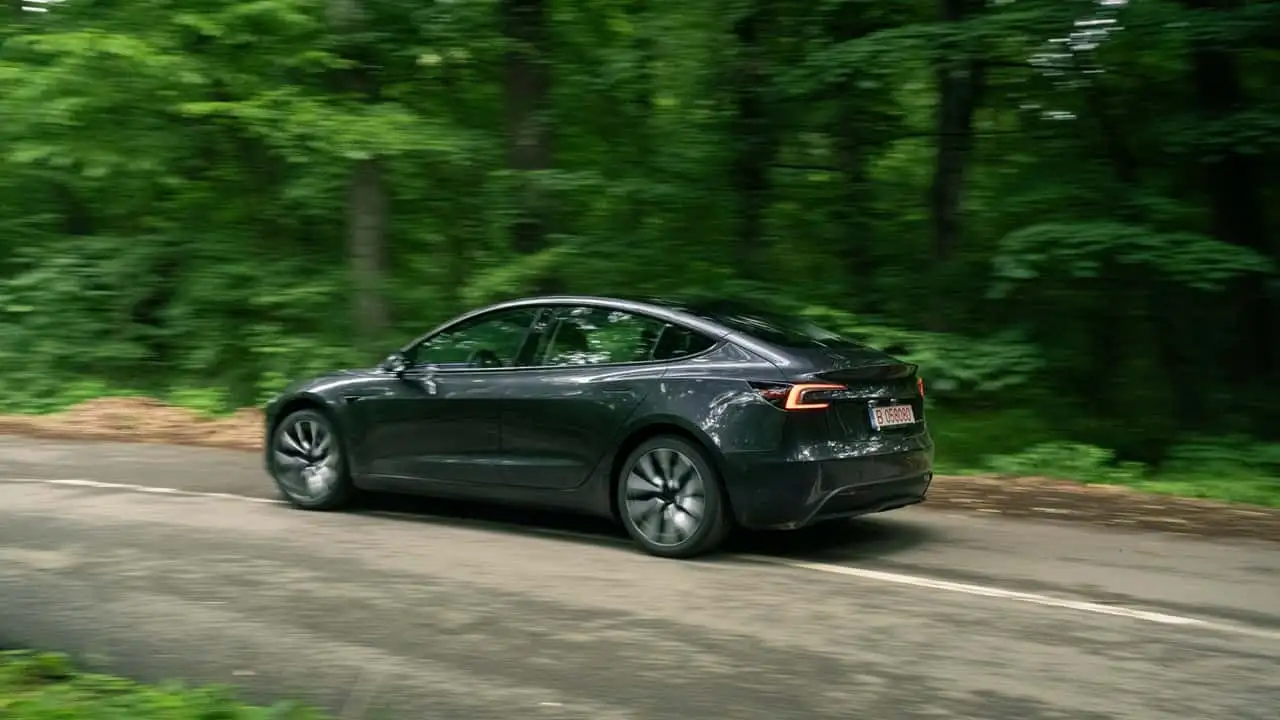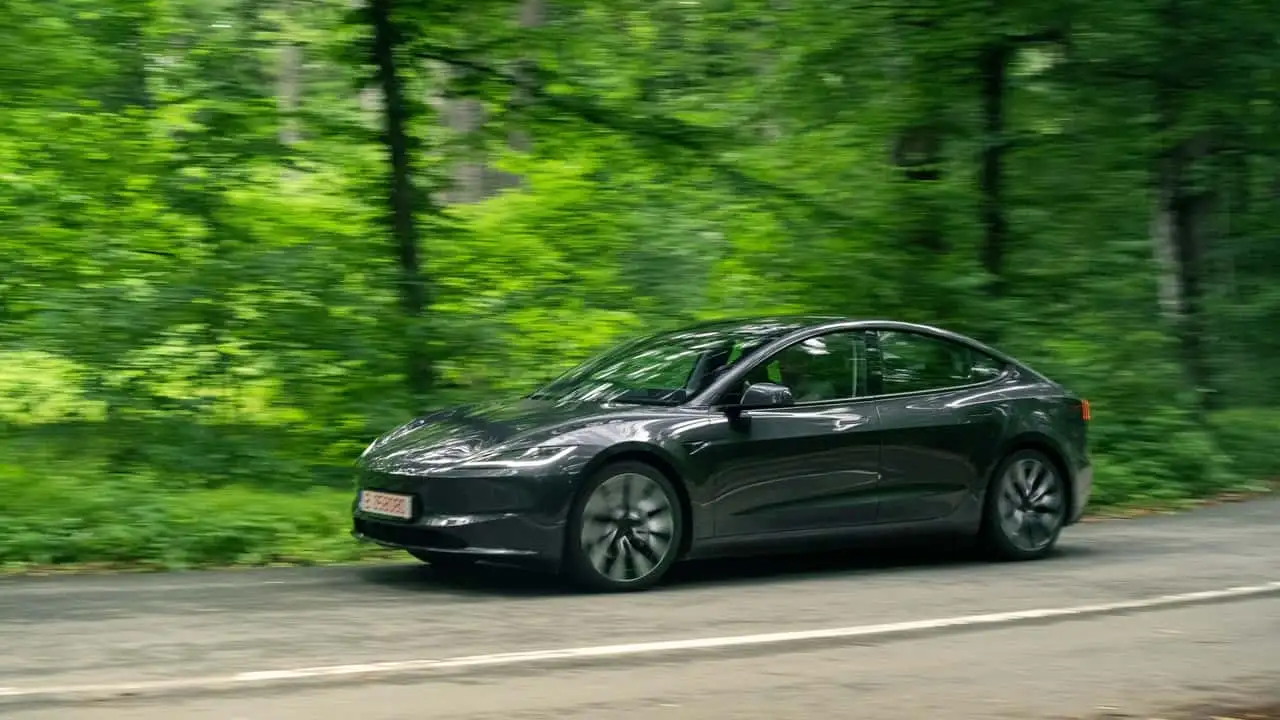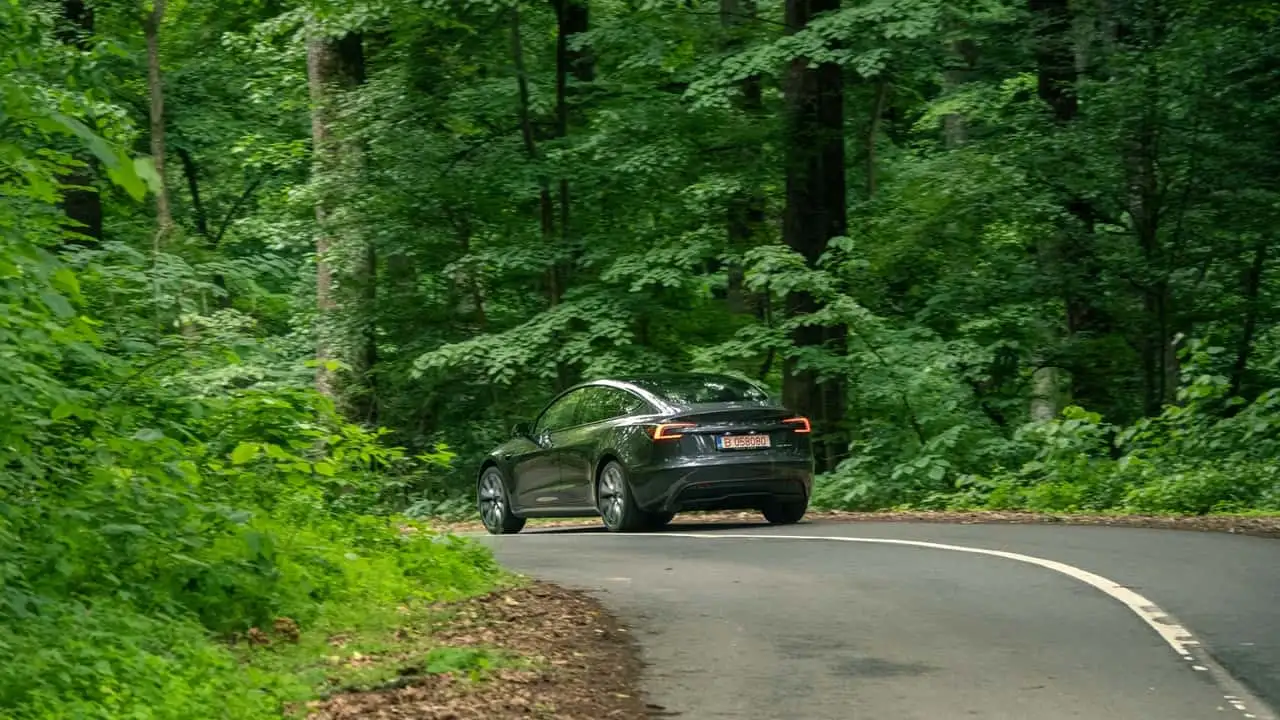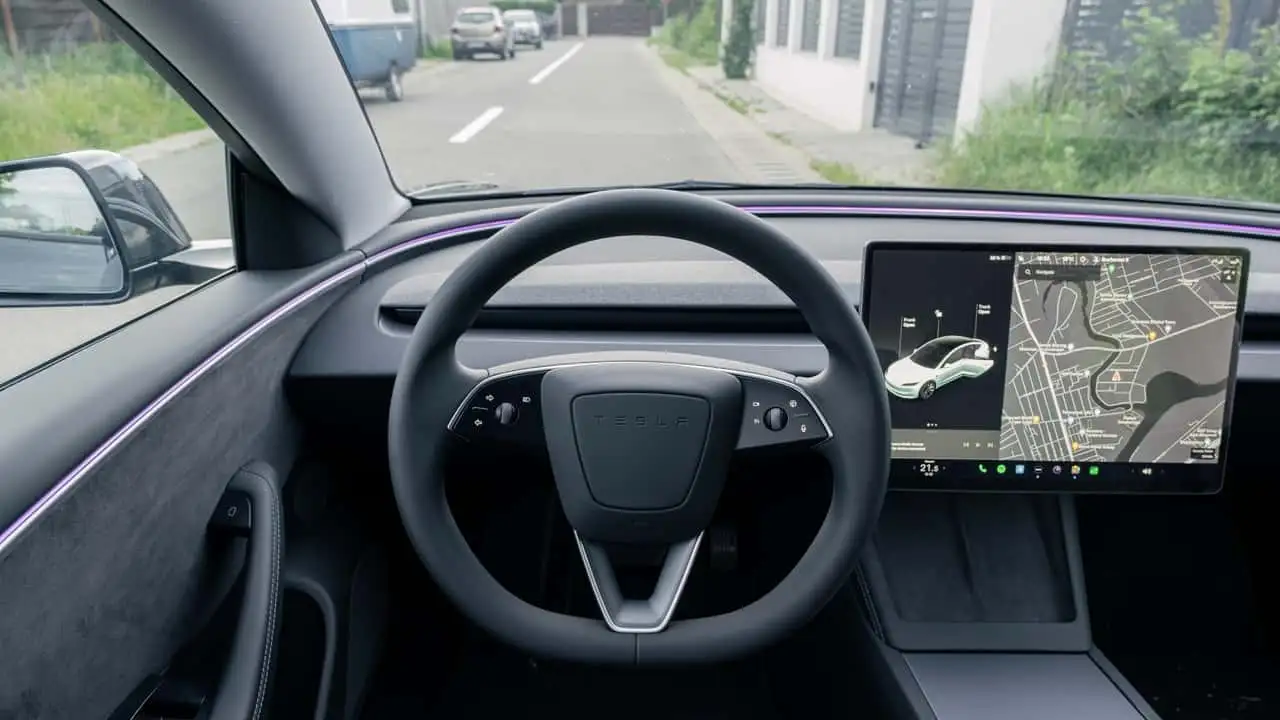Has the Highland’s softer suspension and different tire choice affected the Model 3’s appeal as one of the most fun-to-drive EVs?
Tesla has not only changed how the 2024 Model 3 looks but has also made significant changes under the skin, especially to the suspension. The refreshed Model 3 seems geared much more toward comfort than before, and with the standard tires, it doesn’t feel quite as connected to the road as it did before.
However, the new setup brings a welcome change for a daily driver. Ride comfort is vastly improved, even on the larger 19-inch wheels I had on the Model 3 Long Range I tested last week. The newfound comfort is elevated for everyday driving by the revised seats and the double-glazed side windows. They do a phenomenal job of keeping noise at bay and completely transforming the vehicle—for the better.
It’s only when you take it to a twistier road and try stringing a few corners together spiritedly that you notice some of the negative effects of the softer suspension. The new Model 3 has a surprising amount of both body roll and pitch and dive, and while there is plenty of grip from this confidence-inspiring machine, you will feel like you have to hold on to the steering wheel to keep yourself fixed in the seat.
Tesla has equipped the revised Model 3 with frequency selective dampers, which can passively adjust the rebound rate to offer either comfort or stiffness depending on road conditions. You will most notice them working when going over washboard-type surfaces or over lots of small imperfections in the road when it will feel like the vehicle has softened its suspension. They are not powered like adaptive dampers, but you can feel their presence and they bring a notable improvement in comfort.
The new Model 3 Performance has stiffer and lower springs and adaptive dampers that you can stiffen up, so it should address much of what I said above. It also gets body-hugging sports seats (a first for the Model 3), and their extra support should help improve the driving experience further.
The steering was one of the highlights of the Model 3 driving experience. It is quick and precise, and turning the wheel from lock to lock is easy and surprisingly fun. The new steering wheel has a sporty flat bottom and a rim of just the right thickness. It is also a delight to hold and use, even with the strangely placed indicator buttons.
The steering helps the new Model 3 feel engaging on a twisty road and provides some feedback, which is impressive for a car like this. I suspect that if you upgrade the car’s standard Hankook Ion Evo tires, which are supposed to be EV-specific performance tires—their manufacturer says they provide low rolling resistance and noise but are supposed to retain the handling character of a performance tire; I don’t think they do.
Switching to a set of Ultra High Performance (UHP) Michelin, Continental, Goodyear or Bridgestone tires will improve grip and feel and mitigate some of the car’s tendency to wash wide when pushing through corners. These tires will negatively affect range, though.
The excellent visibility you get from behind the wheel of a Model 3 is unmatched. There is no instrument binnacle in front of you, and while peering over to the middle screen to see your speed is not as good as having dials in front of you, it does give you a better view of the road.
The car’s nose is short, and it seems to dive away suddenly, a feeling I’ve only experienced in mid-engined cars. This further enhances the driver’s enjoyment—you feel like you can really place the car through corners with great precision.
One thing that unquestionably makes the Model 3 feel like a performance car is its acceleration. The new Dual Motor has a combined output just shy of 400 horsepower, and it launches itself at an alarming pace to reach sixty from a standstill in a little over four seconds. It feels really fast, enough to change the perspective of some of your EV-skeptic friends who still don’t think EVs can be fun in a straight line.
Tesla doesn’t provide a faux engine sound to accompany the acceleration, but as good as the fakery is in cars like the Hyundai Ioniq 5 N, feeling the completely silent surge as you step on the right pedal in a two-motor Model 3 is still hugely entertaining. You run the risk of going way past the speed limit if you’re not careful, as the car keeps pulling relentlessly to its top speed.
The choice of tire reportedly prompted Tesla to lower the top speed of the Model 3 Dual Motor from 145 mph to 125 mph. Nobody outside of Germany was going that fast in their Model 3, but for those select few Model 3 buyers who live near an unrestricted stretch of autobahn and have a short daily commute, blasting down the highway won’t be quite as satisfying in the new car.
Overall, the new Model 3 still feels sporty, but not as sporty as before. It is a much better and more comfortable daily, and it feels like a bigger step up from its predecessor than it would seem without actually trying one. I’m curious to see how big an improvement the Model 3 Performance is since it seems to address all the points I raised here, and it has the makings of one of the best performance EVs ever launched.
